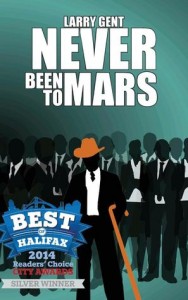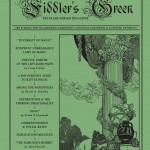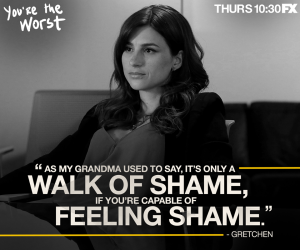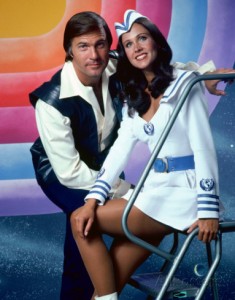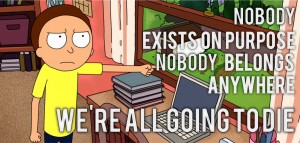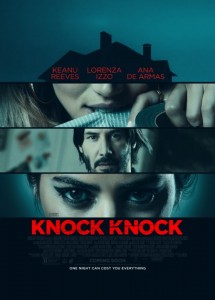
Knock Knock
I spent a week recently without The Duchess, who was off in far-flung lands rampaging with credit cards and no interest in learning a second language, and spent some of that time watching bad movies on Netlfix etc. Also baseball playoffs, but also bad movies, because sometimes you need a palate cleanser. And some of these bad movies got me to thinking about tropes, as I often do, and one in particular that I’d always been annoyed by but hadn’t managed to articulate in my mind before: The Futile Victim.
You see TFV in horror movies, mainly (though not exclusively). The Futile Victim is generally the protagonist of the story, the one who is assaulted and tortured and possibly killed, and their main feature as a character is that they never have any reasonable chance at winning. The Futile Victim may occasionally see chances for escape, revenge, or return fire, but these opportunities are never presented in any serious way to the audience. We know they will fail, and they generally fail almost immediately and quite spectacularly.
Probably the easiest example in film I can think of is Funny Games, a meta-meta horror film where the two demonic young men torturing a pleasant suburban family are so totally in control at one point they literally rewind the movie to undo a sudden twist of fate that favors their victims. In a film like that, the victim never has any chance at all, and you can’t take any of their gambits, brilliancies, or moments of courage seriously, and frankly it’s all kinds of irritating. I think it’s fine to have your victims ultimately fail, and ultimately have the monster/villain be absolutely in control — but I think you have to sell the possibility of a reversal or the stakes disappear. Stakes have to exist for both sides, after all: If the villains are absolutely godlike, then there’s no tension. Bad writers think godlike villains are scarier, but they’re not, because we can easily skip 100s of pages or hours of your film and get right to the inevitable, utterly predictable end.
Knock Knock
The film that actually tipped this over in my head to conscious thought was Knock Knock, the latest from director Eli Roth, starring Keanu Reeves — SPOILERS HO! Knock Knock is basically a remake/update of a 1970s cult film called Death Game or The Seducers depending on who you ask, starring Sondra Locke (who produced Knock Knock) and Colleen Camp, who has a small role, and some guy whose name escapes me but who is basically 1970s Marlboro Man by way of porn sets as far as I can tell.
Anyway, the basic plot of the film is kind of clever: A more or less happily married father of two (Reeves), slightly blueballed by a busy wife and perhaps resentful that his family abandons him on Father’s Day because he has to work, answers the door on a stormy night to find two cute young women, soaking wet and very polite, who beg him to let them in to use the phone. The girls slowly ramp up a seduction: At first they are the picture of good behavior, seeming only to appreciate the assistance, but they find excuses to penetrate deeper into his home, to shed their clothes, to chat about sex, to touch him.
This sequence of seduction is actually done very well. It uses an Uber car on its way as a clever time pressure — will Reeves manage to resist long enough? — and Reeves plays his combined discomfort and fascination well. The tension here i s real for one very important reason: We’re not 100% certain how it’s going to go. Reeves could believably resist. After all, the girls are cute, but he’s portrayed as a loving father and husband, and he seems perfectly aware of what they’re doing.
Of course, he does give in, and after a gratuitous threesome sequence, we get to the meat of the story: The girls, now that they’ve gotten Reeves to break the rules, set about punishing him, and he finds himself unable to simply throw them out of the house because they’ve got him: He cheated on his wife, the girls suddenly (and improbably) claim to be underage, and Reeves can see how it could all play out into a rape charge and the end of his life as he knows it. By the time the punishment switches from mind games and petty vandalism to Reeves tied to a chair while the girls dig his grave in the back yard, it’s too late for him to call the cops.
The Futility of It All
It’s not a bad movie, really, and if Roth will never be a great director he gets a lot of energy from the scenario, and does what horror films do best: Makes his audience ask themselves if they would be do any better. The problem is Reeves’ character is a Futile Victim.
Roth explicitly gives Reeves three specific moments in the story where it seems possible he might escape or at least turn the tables: Early on, the girls leave him alone while he’s imperfectly tied up and he frees himself — only to be almost immediately subdued again, as in literally thirty seconds after getting free; Next, his wife’s assistant shows up unexpectedly, and the girls are inscrutably worried about his presence at first, and he turns out to be a ballsier character than initially assumed, and for a moment it seems possible he might throw a believable wrench into their plan, but he has a fatal weakness that shows up almost immediately, and suddenly the girls aren’t concerned about his presence at all and so they kill him; and finally, Reeves knows where a gun is hidden in the house and seems on the verge of extracting it, only to have the girls swoop in and find it first.
In short, all three times, Reeves’ chances of escape end pretty much immediately. Why bother having them in the first place? To prove that the monsters are all-powerful, I assume, but it makes things terribly boring.
When the victim/protagonist gets the drop on their tormentor, it should be a moment rife with tension. You should be glued to the screen or the page, wondering what happens next. Instead, in Knock Knock and similar films, you’re bored, because you know it won’t last long, and will end in futility.



